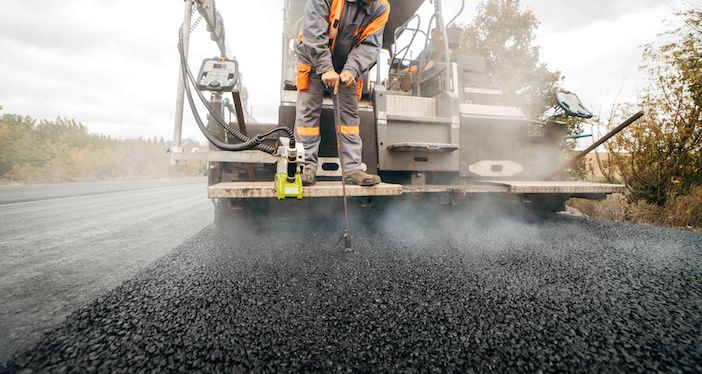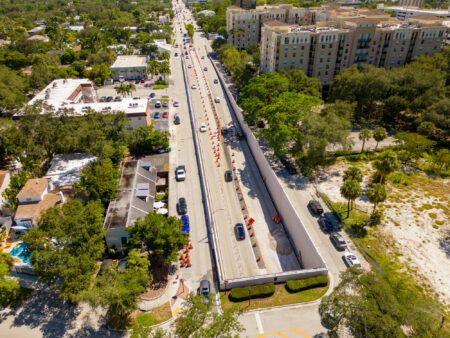The UK Government has indicated it will be less likely to invest in major road infrastructure projects in future years and instead put more focus on maintenance of England’s Strategic Road Network.
The suggestion is made in the Department for Transport’s response to the Transport Committee’s report on Strategic Road Investment, an inquiry prompted by persistent delays and overspends on a catalogue of large-scale schemes.
The Committee’s inquiry examined the reasons behind issues that affected National Highways’ multi-billion pound portfolios of projects to improve and grow the Strategic Road Network – 4,300 miles of motorways and A roads.
As well as investigating ways to improve delivery of National Highways’ five-year Road Investment Strategy (RIS) portfolios, MPs also questioned how the Government’s drive to deliver major road projects could accord with its statutory Net Zero targets.
“We applaud the Government’s indication it will put more emphasis on renewal and maintenance of England’s ageing Strategic Road Network,” says Transport Committee chair Iain Stewart MP. “This is a wiser course of action than pouring billions into major enhancements that have been beset by delays and soaring costs, and it better reflects motorists’ interests. However, we do not accept the Department’s excuse that risks to these schemes were somehow unforeseeable. The NAO and others have made clear this was not so.
“Attempting to analyse the status of various schemes often felt like navigating a spaghetti junction, with key documents either not available or only from disparate sources. It was also positive to see the Department agree to look at publishing more frequent updates.
“However, it was disappointing that the Government seems unwilling to explore even the possibility that investing in alternative, less carbon-intensive transport projects could limit the increases in congestion on major roads that it appears to believe are inevitable.
“We also welcome the acknowledgement that regional transport bodies could be engaged with more during the planning and delivery of future schemes. After all, they are best placed to understand the needs of their communities and risks that could crop up.”

Below is a summary of the DfT’s response to the report’s recommendations.
Prioritising day-to-day maintenance
The cross-party Committee’s report argued that money for the next Road Investment Strategy should be prioritised on renewal and maintenance of the strategic road network, rather than costly enhancements that have been prone to delay and overspend. Witnesses said that research showed road users would also prefer the day-to-day upkeep of existing roads to be prioritised.
The DfT agreed in principle with this point and said almost half of funding for RIS2 (for 2020-2025), totalling £27.4 billion, was budgeted for maintenance work.
It said: “Maintenance and renewals to keep the network in a safe and serviceable condition and minimise the need for more structural, intrusive repairs, are likely to be a growing and essential element of the roads programme.”
It added: “The Government is currently developing its investment priorities for RIS3 (2025-30). More details will be set out in the draft RIS3 later in 2023.”
Managing future congestion and demand
During its inquiry the Committee heard concerns that the population’s switch to electric vehicles may not happen quickly enough to offset the added carbon emissions that would result from increases in traffic on the SRN. MPs therefore urged DfT to consider actions and model scenarios that could instead reduce or limit such increases.
Ministers rejected this point and said the Government’s role is “not to stop people travelling”.
The response added: “The current trajectory set out in the Carbon Budget Delivery Plan (CBDP), published in March 2023, presents a credible pathway to net zero without restricting growth.”
Engaging with regional transport bodies
The report said the Government should codify a requirement in National Highways’ licence for it to formally engage with regional transport bodies when planning future RIS portfolios.
This would enable National Highways to benefit from local knowledge and better identify risks to individual schemes.
DfT said National Highways is already required to engage with regional bodies, but that it would “consider” including a provision for this when its licence next due for renewal.
Boosting transparency
Witnesses said it could be challenging to access and track National Highways’ progress in delivering schemes within the Road Investment Strategy portfolios. This was because updates are published annually, and at different times of the year, by the Office for Rail and Road (ORR), DfT and National Highways.
MPs said a “live” project dashboard should be published to provide up-to-date information on all projects in the RIS portfolios, including their costs, planning status and expected completion dates.
The Government said a “genuinely live” dashboard would not be “practical”, but promised to “work closely with National Highways and the ORR, to explore the opportunity for more frequent public project reporting in one place”.





